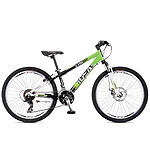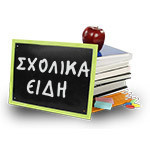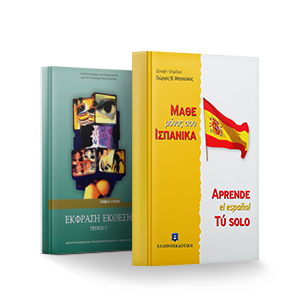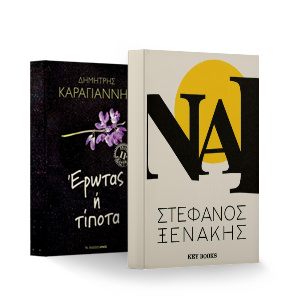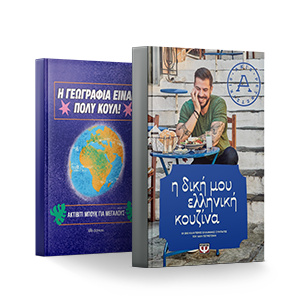Skroutz Buyers Protection
Διδάσκοντας φυσικές επιστήμες, Theoretical issues, concerns, proposals Code: 272666
- Author: Κρυσταλλία Χαλκιά
- Publisher: Patakis
- Μορφή: Soft Cover
- Έτος έκδοσης: 2010
- Αριθμός σελίδων: 267
- Κωδικός ISBN-13: 9789601633909
- Διαστάσεις: 26×21
Κρυσταλλία Χαλκιά
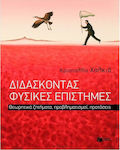
Scientific Books
Διδάσκοντας φυσικές επιστήμες, Theoretical issues, concerns, proposals
from 32,43 €Added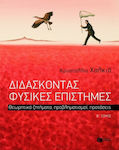
Scientific Books
Διδάσκοντας φυσικές επιστήμες, Theoretical issues, concerns, proposals
from 14,16 €Added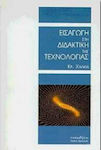
Similar products
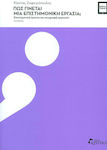
Scientific Books
Πώς γίνεται μια επιστημονική εργασία;, Scientific research and writing papers
Ad from Propaganda ChannelAdded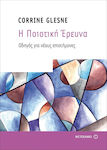
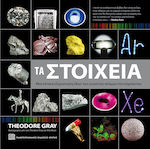
Scientific Books
Τα στοιχεία, A visual exploration of the known atoms of the universe
Ad from BooklibertyAdded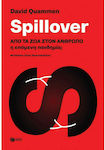


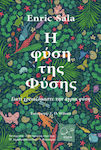
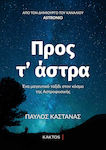 Top rated
Top ratedScientific Books
Προς τ’ άστρα, A magical journey into the world of Astrophysics
Ad from MykyklosAdded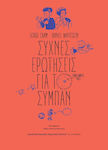
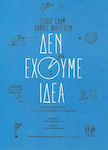 Top rated
Top rated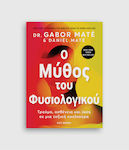
Scientific Books
Ο Μύθος Του Φυσιολογικού, Trauma, disease and healing in a toxic culture
Ad from SilverProductsAdded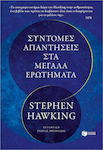 Top rated
Top rated
All shops
Prices are calculated for:Malta, Other Payment Options
- 20,54 €
- 24,25 €
- 18,16 €
- 27,50 €
- 20,62 €
- 16,50 €
Description
This book consists of two parts. The first part of the book presents and analyzes some basic issues in the teaching of natural sciences. Specifically, an attempt is made to explore the concept of scientific literacy, the two most important theoretical currents that have influenced and continue to influence the teaching of natural sciences (conceptual change and socio-cultural approach) are presented, alternative ideas of students are commented on and techniques for their recognition and enhancement are developed, while ways of handling them are also proposed.
In the first part, a presentation and analysis of dominant teaching models and specific teaching strategies are also made, which can be utilized within these models.
In addition, certain teaching tools are presented, such as models, proportions and transfers, mental experiments and conceptual maps. These tools are crucial for teaching complex concepts and help students perceive complex phenomena.
At the end of the first part, a detailed presentation of informal forms of knowledge and learning in the natural sciences is made. Nowadays, these forms of learning claim a significant share of students' education. They are characterized by a variety and complexity that are difficult to control. However, educators must know how to evaluate them in order to effectively utilize them.
The second part of the book begins with a brief chapter outlining the logic of a lesson plan, followed by 5 chapters dedicated to equal thematic units (mechanics, electricity, heat, optics, photosynthesis). Each thematic unit includes 4 parts:
a) a very brief reference to the relevant concepts (in scientific content), which aims to simply remind the reader of the relevant knowledge and encourage them to refer to other more systematic reference sources.
b) a brief historical overview of the development of the relevant scientific concepts from ancient times to the present. This historical overview aims to help educators realize that: 1. the concepts they teach did not arise "magically", but were shaped in specific social and cultural conditions and - therefore - carry the conceptual weight of this entire process, and 2. the ideas of children - in many cases - show similarities to some of the ideas formulated by philosophers or scientists of other eras. Additionally, it encourages them to refer to other more systematic sources for more thorough study and understanding of the subject.
c) the (alternative) ideas of students about these specific concepts, which reflect the everyday way of thinking of students. It aims to help educators realize the difficult path that students have to traverse from their everyday (and empirical) way of thinking to the scientific (and beyond the senses) way of thinking.
d) the teaching process of reconstructing some of these ideas (or realizing the difference between their own and the scientific way of thinking) and building the relevant scientific knowledge in its school version.
Both the problems faced by each teaching from the presented thematic areas, the actions of the educator and the worksheets are presented. Emphasis was placed on the teaching model of social constructivism, because it is a complex strategy - largely unknown in the school practice of Greece - which places particular emphasis on the physical significance of the content and - where appropriate - incorporates practices from other teaching models (discovery, transfer).
Specifications
- Genre
- Exact Science
- Language
- Greek
- Subtitle
- Theoretical issues, concerns, proposals
- Format
- Soft Cover
- Number of Pages
- 267
- Publication Date
- 2010
- Dimensions
- 26x21 cm
Important information
Specifications are collected from official manufacturer websites. Please verify the specifications before proceeding with your final purchase. If you notice any problem you can report it here.





































































